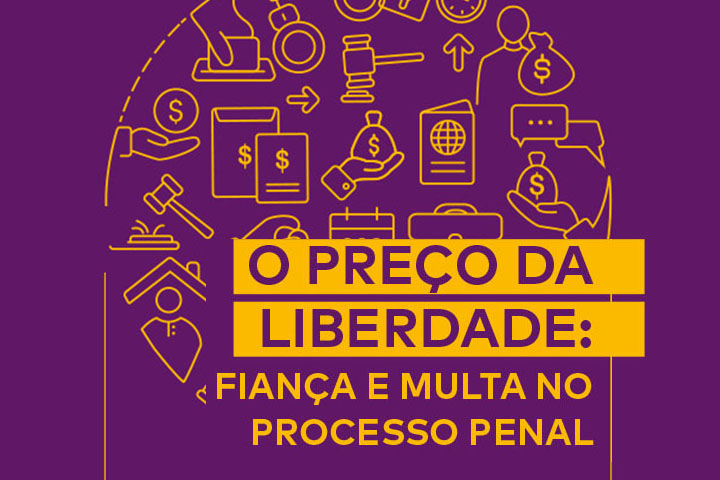A new study shows the impact of imposing bail and fines on poor people
The report analysed 50 thousand cases in the state of São Paulo from 2015 to 2018

Around 50 thousand judicial sentences in the State of São Paulo were analysed in a new study, carried out by Conectas, in order to understand the impact of imposing fines and granting bail to prisoners in Brazil.
The report “O preço da liberdade: fiança e multa no processo penal” (The price of freedom: bail and fines in the criminal process), now available for consultation, shows that the efficiency of these tools depends on the offender’s financial situation. In practice, they serve as a financial filter that leads to imprisonment and loss of rights for poor people.
“Everybody is used to seeing cases like this – if your family doesn’t have enough money to pay bail, you go to prison, even if you don’t represent any real threat to society. Rich people do not run this risk, even when they have committed worse crimes.” Explains Marcos Fuchs, Deputy Director of Conectas.
“In addition, few people know this, but after fulfilling a prison sentence, poor people who are returning to society to try to rebuild their lives, often have to pay a penalty fine, otherwise they lose their right to vote and their criminal record is not cleared, which means they can’t get a job. It doesn’t make any sense at all.” He concludes.
The study was carried out based on custodial hearings attended, requests made via the Access to Information Act and through searches of São Paulo state justice court files.
What is bail?
Criminal bail is a cautionary measure, created by the Precautionary Measures Act, in which provisional release is ensured for some types of crime, on the grounds of payment of a certain amount of money or objects, appearance at court and the guarantee that there will be no obstruction to the proceedings.
This can be applied in cases set out by law, its legal functioning being a contract between the accused and the state.
The amount to be paid is determined by police authorities when the infraction carries a sentence of up to four years. Bail is negotiated by a judge, for crimes carrying longer sentences.
It is important to note that in cases in which the accused is acquitted, the amount paid for bail can be returned, providing there is no break in the agreement, during the process of awaiting sentencing.
What is a penalty fine?
A penalty fine is one of the three types of sentence provided for in Brazilian Criminal Law (CPB). While a sentence of deprivation of liberty means a person goes to prison and an alternative sentence means a person’s rights are limited, a fine means a penalty paid in money.
Calculation is done in terms of the number of days of the fine. A number of days is established and this is multiplied by the sum set by the magistrate. The completion of sentence will not be recognised by the Brazilian justice system, if a convict does not pay the penalty fine.
It should be noted that the Brazilian drugs law has set high levels for calculating the number of days of the fine. According to the law, the minimum is one hundred days and the maximum is four thousand. Official data shows that one third of those in prison are there for drug-related crimes.
- Read the report “O Preço da Liberdade” in full here.


